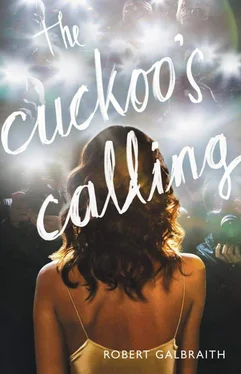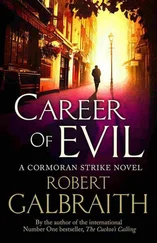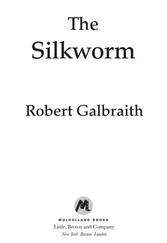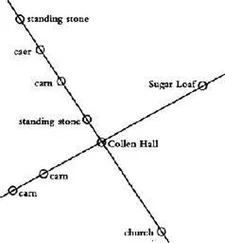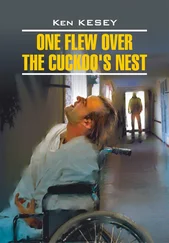The explosion of publicity around Bristow’s arrest had done Strike’s business no harm at all. He might even genuinely need a secretary before long; and indeed, as he made his way painfully up the stairs to his office, he heard Robin’s voice on the telephone.
“…an appointment for Tuesday, I’m afraid, because Mr. Strike’s busy all day Monday…Yes…absolutely…I’ll put you down for eleven o’clock, then. Yes. Thank you. Goodbye.”
She swung around on her swivel chair as Strike entered.
“What was Jonah like?” she demanded.
“Nice guy,” said Strike, lowering himself into the collapsed sofa. “Situation’s doing his head in. But the alternative was Bristow winding up with ten mill, so he’ll have to cope.”
“Three prospective clients phoned while you were out,” she said, “but I’m a bit worried about that last one. He could be another journalist. He was much more interested in discussing you than his own problem.”
There had been quite a few such calls. The press had seized with glee upon a story that had angles aplenty, and everything they loved best. Strike himself had featured heavily in the coverage. The photograph they had used most, and he was glad of it, was ten years old and had been taken while he was still a Red Cap; but they had also dug out the picture of the rock star, his wife and the supergroupie.
There had been plenty written about police incompetence; Carver had been snapped hurrying down the street, his jacket flying, the sweat patches just visible on his shirt; but Wardle, handsome Wardle, who had helped Strike bring Bristow in, had so far been treated with indulgence, especially by female journalists. Mostly, however, the news media had feasted all over again on the corpse of Lula Landry; every version of the story sparkling with pictures of the dead model’s flawless face, and her lithe and sculpted body.
Robin was talking; Strike had not been listening, his attention diverted by the throbbing in his arm and leg.
“…a note of all the files and your diary. Because you’ll need someone, now, you know; you’re not going to be able to take care of all this on your own.”
“No,” he agreed, struggling to his feet; he had intended to do this later, at the moment of her departure, but now was as good a moment as any, and it made an excuse to leave the sofa, which was extremely uncomfortable. “Listen, Robin, I haven’t ever said a proper thank-you…”
“Yes you have,” she said hurriedly. “In the cab on the way to the hospital—and anyway, there’s no need. I’ve enjoyed it. I’ve loved it, actually.”
He was hobbling away into the inner office, and did not hear the catch in her voice. The present was hidden at the bottom of his kitbag. It was very badly wrapped.
“Here,” he said. “This is for you. I couldn’t have done it without you.”
“Oh,” said Robin, on a strangled note, and Strike was both touched and faintly alarmed to see tears spill down her cheeks. “You didn’t have to…”
“Open it at home,” he said, but too late; the package was literally coming apart in her hands. Something slithered, poison-green, out of the split in the paper, on to the desk in front of her. She gasped.
“You…oh my God, Cormoran…”
She held up the dress she had tried on, and loved, in Vashti, and stared at him over the top of it, pink-faced, her eyes sparkling.
“You can’t afford this!”
“Yeah, I can,” he said, leaning back against the partition wall, because it was marginally more comfortable than sitting on the sofa. “Work’s rolling in now. You’ve been incredible. Your new place is lucky to get you.”
She was frantically mopping her eyes with the sleeves of her shirt. A sob and some incomprehensible words escaped her. She reached blindly for the tissues that she had bought from petty cash, in anticipation of more clients like Mrs. Hook, blew her nose, wiped her eyes and said, with the green dress lying limp and forgotten across her lap:
“I don’t want to go!”
“I can’t afford you, Robin,” he said flatly.
It was not that he had not thought about it; the night before, he had lain awake on the camp bed, running calculations through his mind, trying to come up with an offer that might not seem insulting beside the salary offered by the media consultancy. It was not possible. He could no longer defer payment on the largest of his loans; he was facing an increase in rent and he needed to find somewhere to live other than his office. While his short-term prospects were immeasurably improved, the outlook remained uncertain.
“I wouldn’t expect you to match what they’d give me,” Robin said thickly.
“I couldn’t come close,” said Strike.
(But she knew the state of Strike’s finances almost as well as he did and had already guessed at the most she could expect. The previous evening, when Matthew had found her in tears at the prospect of leaving, she had told him her estimate of Strike’s best offer.
“But he hasn’t offered you anything at all,” Matthew had said. “Has he?”
“No, but if he did…”
“Well, it would be up to you,” Matthew had said stiffly. “It’d be your choice. You’d have to decide.”
She knew that Matthew did not want her to stay. He had sat for hours in Casualty while they stitched Strike up, waiting to take Robin home. He had told her, rather formally, that she had done very well, showing such initiative, but he had been distant and faintly disapproving ever since, especially when their friends clamored for the inside details on everything that had appeared in the press.
But surely Matthew would like Strike, if only he met him? And Matthew himself had said that it was up to her what she did…)
Robin drew herself up a little, blew her nose again and told Strike, with calmness slightly undermined by a small hiccough, the figure for which she would be happy to stay.
It took Strike a few seconds to respond. He could just afford to pay what she had suggested; it was within five hundred pounds of what he himself had calculated that he could manage. She was, whichever way you looked at it, an asset that it would be impossible to replace at the price. There was only one tiny fly in the ointment…
“I could manage that,” he said. “Yeah. I could pay you that.”
The telephone rang. Beaming at him, she answered it, and the delight in her voice was such that it sounded as though she had been eagerly anticipating the call for days.
“Oh, hullo, Mr. Gillespie! How are you? Mr. Strike’s just sent you a check, I put it in the post myself this morning…All the arrears, yes, and a little bit more…Oh no, Mr. Strike’s adamant he wants to pay off the loan…Well, that’s very kind of Mr. Rokeby, but Mr. Strike would rather pay. He’s hopeful he’ll be able to clear the full amount within the next few months…”
An hour later, as Strike sat on a hard plastic chair at the Amputee Center, his injured leg stretched in front of him, he reflected that if he had known that Robin was going to stay, he would not have bought her the green dress. The gift would not, he was sure, find favor with Matthew, especially once he had seen her in it, and heard that she had previously modeled it for Strike.
With a sigh, he reached for a copy of Private Eye lying on the table beside him. When the consultant first called him, Strike did not respond; he was immersed in the page headed “LandryBalls,” crammed with examples of journalistic excess relating to the case that he and Robin had solved. So many columnists had mentioned Cain and Abel that the magazine had run a special feature.
“Mr. Strick?” shouted the consultant, for the second time. “Mr. Cameron Strick?”
He looked up, grinning.
Читать дальше
